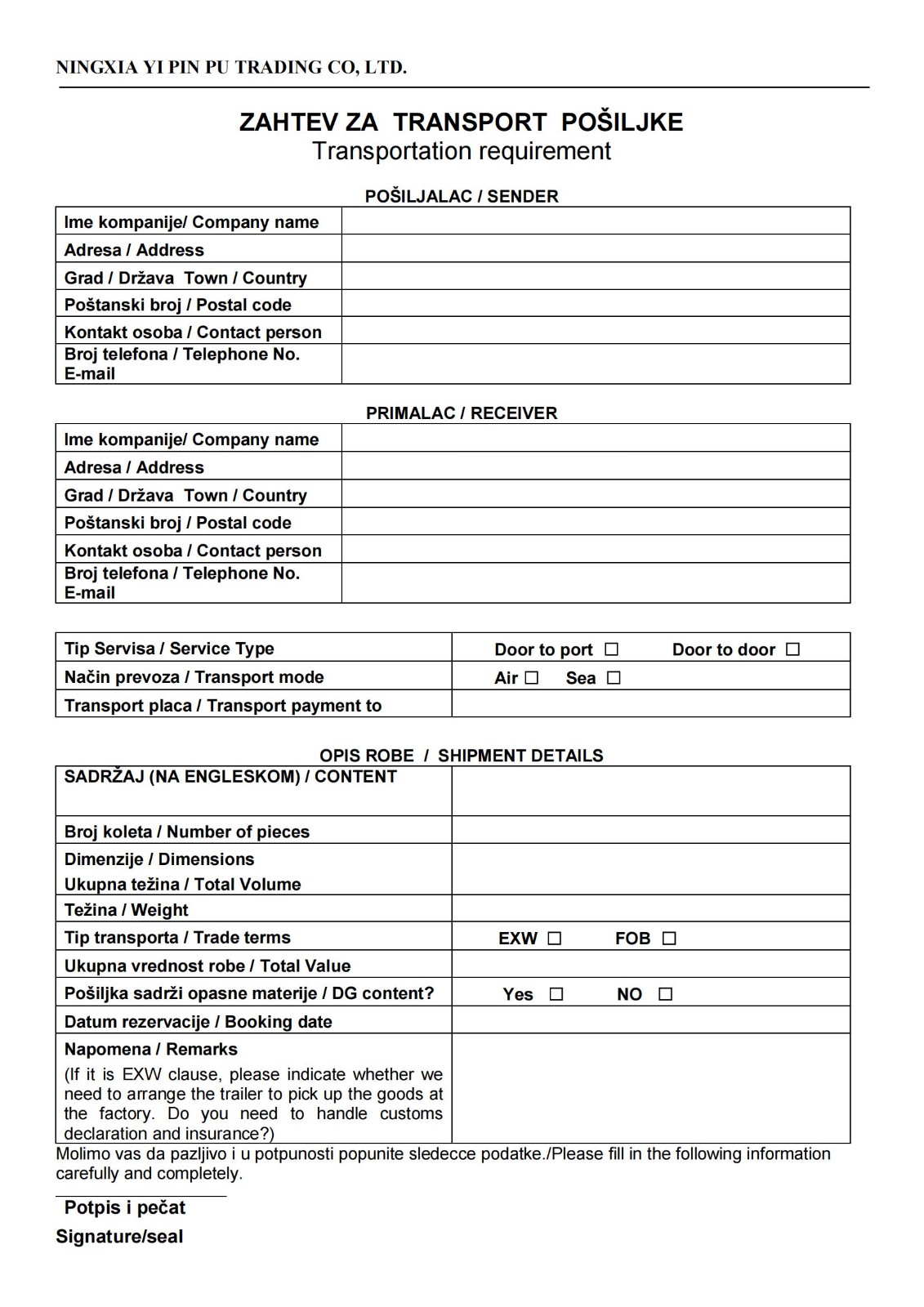
© Copyright NINGXIA YI PIN PU TRADING CO., LTD. All rights reserved.

The following points for attention in international freight transportation are the author's personal experience and summary (constantly updated). These views are personal. No one can reprint without the author's consent.
1. Provide complete information of bill of lading
Complete information of bill of lading must be provided before shipment. If the complete information is provided to the freight forwarder or carrier for the purpose of checking the information only, the contents of the bill of lading shall be carefully checked, otherwise, any change after the submission of supplementary materials will result in a change fee. If the manifest is changed after it is sent, there will be not only a change fee, but also a fine.
2. Avoid huge changes in cross month freight
When there is a conflict between the delivery date and the production date, we should flexibly allocate with the freight forwarder in advance to avoid the loss caused by the change of freight at this time. Here, we especially remind the regions with large fluctuation of cross month freight.
3. The importance of subdividing ports
There are many ports in the world with similar spelling, and the same port is subdivided into different customs areas. Therefore, please confirm with the consignee the specific port of the receiving party. If you go to the wrong place, it will not only increase the cost, but also make the problem more complicated if you can't clear the customs.
4. Insurance is recommended
EXW or FOB is the trade term usually chosen by the factory. The risk of the goods after leaving the factory or crossing the ship's rail is borne by the buyer. Therefore, the buyer (i.e. the consignee) is advised to take out insurance. When problems are found, contact the insurance company immediately and provide complete claim information according to the instructions of the insurance company.
5. Make clear whether the brand is infringing, and pay attention to the registered but different brands
OEM cases are everywhere in foreign trade. For the independent brands of customers, the OEM factory should be given the power of attorney in advance, and whether the OEM brand has been registered in China. To avoid the confiscation of goods due to the inability to provide the power of attorney of the obligee and to communicate with the obligee during customs inspection.
6. For transhipment goods, transhipment clause shall be indicated on the bill of lading
For the goods to be transhipped across the border, transhipment clause must be added to the bill of lading. The consignee on the bill of lading can be the consignee of the country of final arrival.
7. Declare the true value of the goods
The value of the imported goods shall be true. If the value of the goods is falsely reported, once it is found, it will be fined at least, and even bear serious legal liability at the most.
8. The importance of reporting cargo weight and other special factors
Different means of transport can carry different weight on the container, generally limited weight. Therefore, it is necessary to make clear the weight of the goods. Overweight may increase the cost, and may also cause the carrier unable to undertake the transportation.
For air cargo, the weight and volume of the cargo (in addition to the total volume, we also need to know the size of each box [length, width and height]) before leaving the factory, and there should be no big error, otherwise the change of weight and volume will lead to the change of freight.
For special goods, the details of the goods shall be explained in advance.
9. Port of destination charges for bulk / LCL
The most typical problem of bulk cargo is that the quotation of different agents may vary greatly (some agents only quote ocean freight from China to the port of discharge, which is very low or even zero freight, but the port of discharge and the port of dest